Improving Health Care One Patient At A Time
UH Student Uses Data Science and Genomics to Understand Personalized Precision Medicine
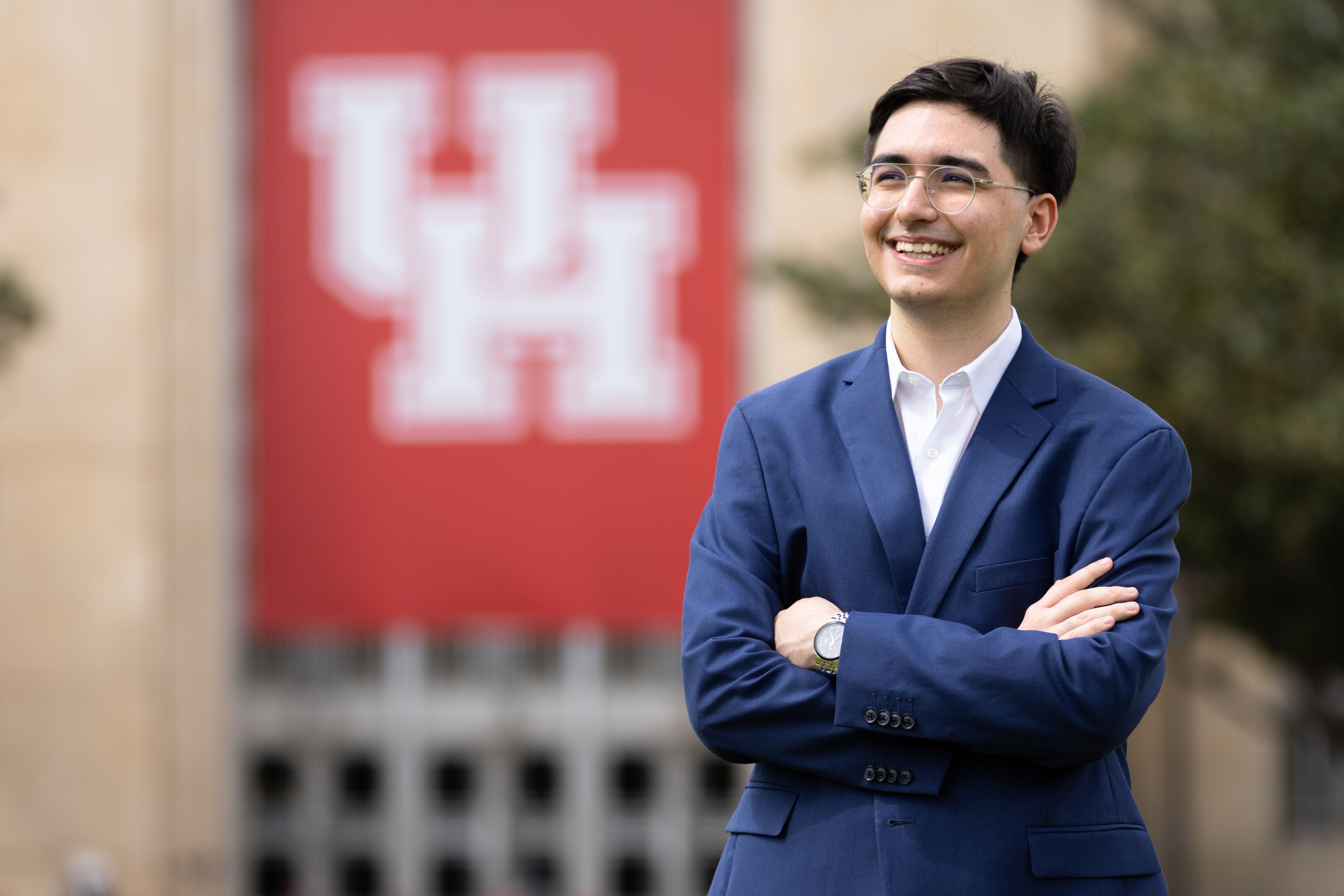
At the age of 20, Mielad Ziaee – a University of Houston undergraduate who aspires to be a physician and a research scientist focused on improving health care and health care access for all – has already built a resume that would awe most professionals.
His latest accomplishment is being selected for the National Institutes of Health’s 2023-2024 All of Us Research Scholar Program (RSP), which pairs early-career investigators with health research professionals working to advance the field of precision medicine.
Last year, he presented his research project about predicting food insecurity in pediatric clinical settings and recommendations to improve the assessment process at the Centers for Disease Control and Prevention as a CDC John R. Lewis scholar. The project was the culmination of his summer research with the Johns Hopkins University School of Medicine and the Kennedy Krieger Institute.
Before that he was a UH Honors College’s Pharis Fellow and worked with researchers at UH’s Tilman J. Fertitta Family College of Medicine and the Hewlett Packard Enterprise Data Science Institute to complete a 10-week guided research experience implementing data visualization and predictive modeling techniques to assess food insecurity in the Third Ward neighborhood. Based on his findings, Ziaee helped develop sustainable policy recommendations to support community nutrition and health.
Ziaee also interned with Harris County Public Health and is currently an Albert Schweitzer Fellow. He is also on the board of the Houston chapter of the American Red Cross.
And last summer, Texas Gov. Greg Abbott appointed Ziaee to a one-year term as the student regent on the UH System Board of Regents.
How was he able to achieve so much?
“I just took every opportunity that came to me,” Ziaee said. “All my experiences connect with my central desire to increase health access and improve health care. I am very intentional about connecting the dots to my passion.”
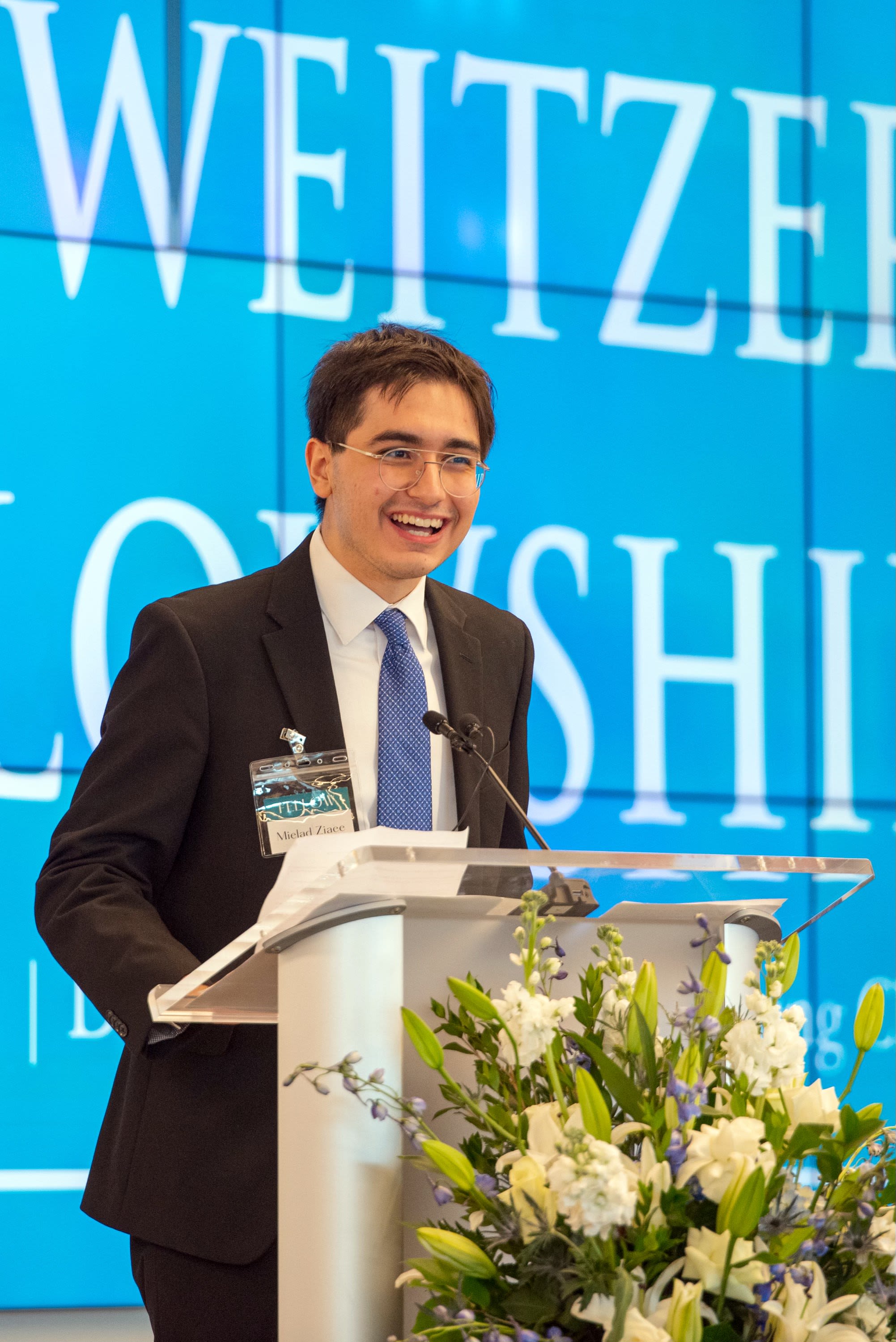
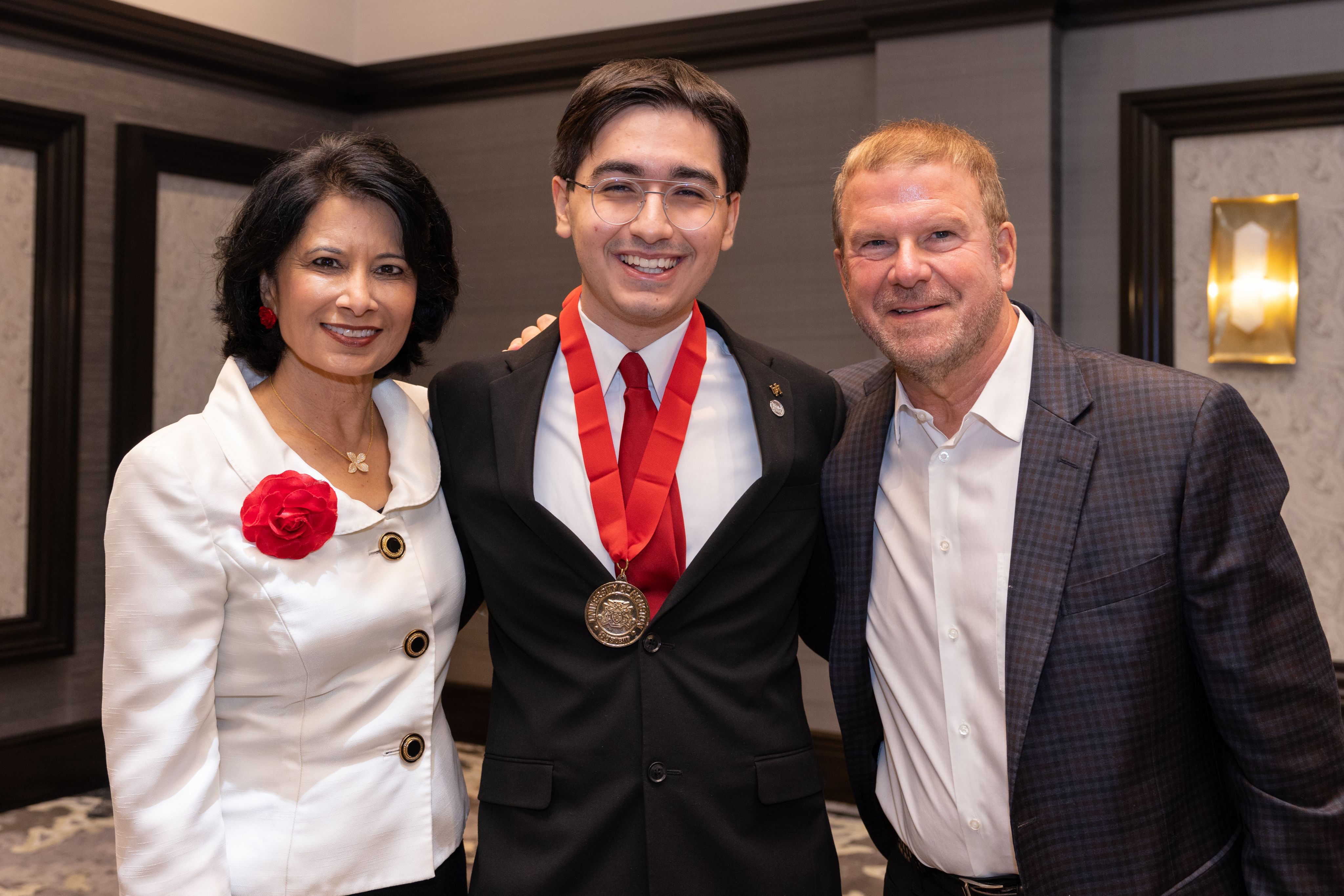
The Beginning
When it comes to health and health care, Ziaee has a broader definition than most people.
“I think a lot of people define health as purely biological, but a lot of other factors influence our well-being, such as mental health, financial health, and even access to good food, medical care and the internet,” he said. “I am interested in seeing the relationship among all these things and how they impact our health. So far, a lot of health policies and systems have not really looked beyond biology.”
As the oldest child of Iranian American immigrants, Ziaee found himself helping his family navigate America’s complex health care system. He saw firsthand how language barriers complicated assessment processes, how far many immigrant families had to travel to find providers who spoke the same language and accepted their insurance, how many missed out on resources because they were not counted.
This personal awareness of health disparities and challenges sparked his interest in pursuing a career in health care. But for most of his schooling, Ziaee described himself as a shy, timid student who was afraid of public speaking. Then in 10th grade, his health science teacher encouraged him to run for office for HOSA – Future Health Professionals, a student-led global organization that provides opportunities for students to develop themselves for health care careers. He ran for office and won, changing his trajectory forever.
Besides connecting him to resources, experiences and opportunities, HOSA showed him that he, an individual, could make a difference.
“When it comes to immigrant communities, there is this almost pervasive notion that you can’t take charge of your health, you can’t be a leader,” Ziaee said. “But my experiences have shown me that anyone has the power to make change and lead this change.”
Attending UH and all his research experiences have shown him how different people have responded to these issues, which often are preventable, and worked to find creative solutions.
“All of these experiences have brought me where I am today,” said Ziaee, a first-generation college student. “I want everyone to have an equal chance to access health care and take charge of their well-being. We need to have the systems in place that let people do that.”
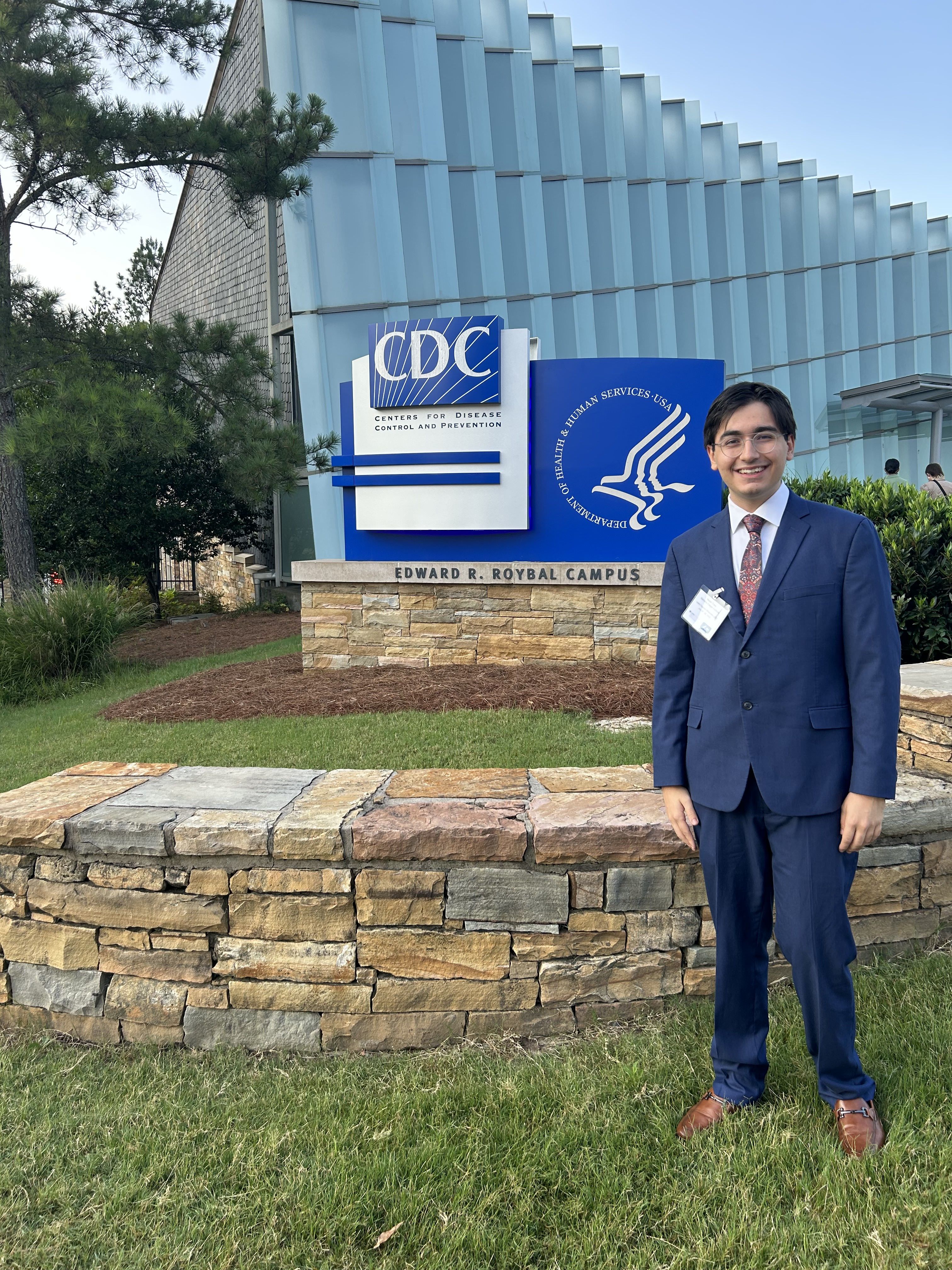
Mielad Ziaee at the CDC where he presented his research on predicting food insecurity.
Mielad Ziaee at the CDC where he presented his research on predicting food insecurity.
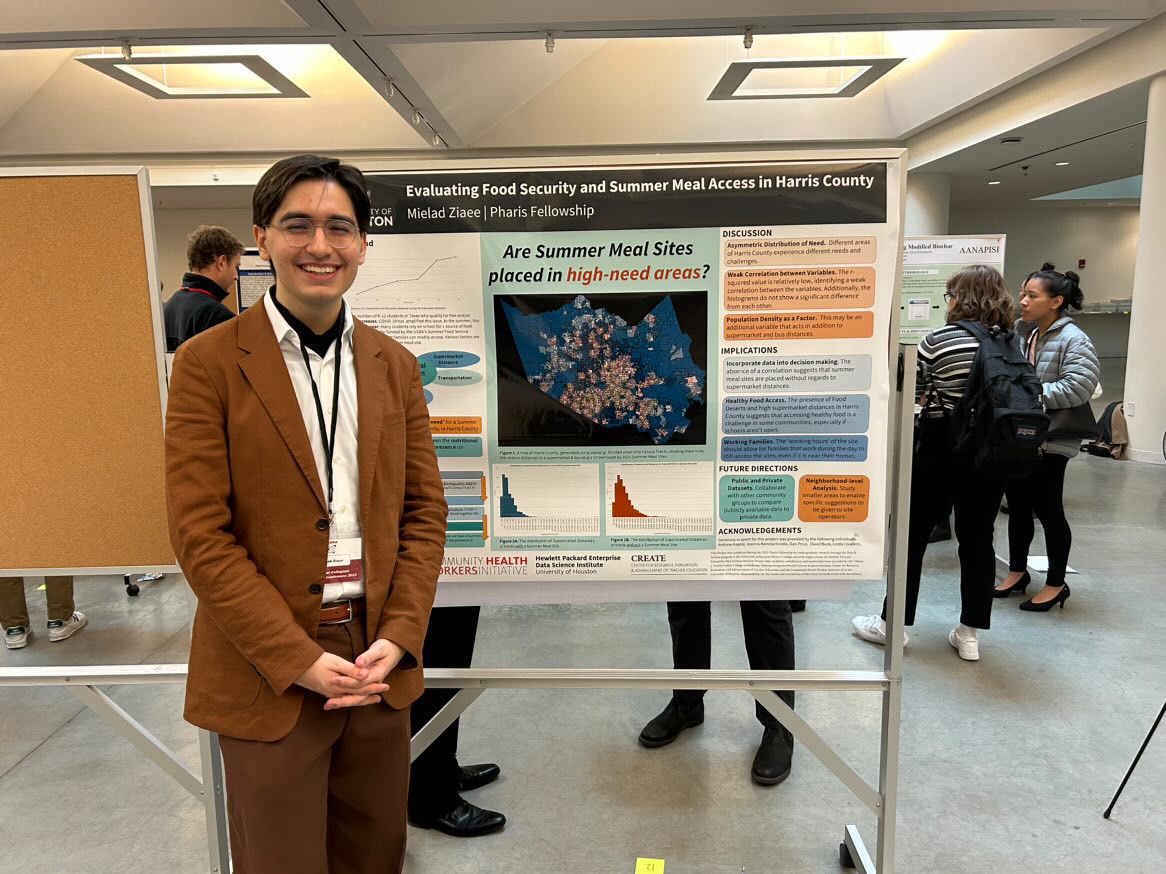
Mielad Ziaee, as a Pharis fellow, presenting his research at Harvard University.
Mielad Ziaee, as a Pharis fellow, presenting his research at Harvard University.
What’s Next?
As an NIH All of Us RSP scholar, Ziaee will be exploring how genomics – the cutting-edge science studying the DNA blueprint of humans – can be used to understand and impact health.
Ziaee is already taking a graduate-level class in genomic data analysis at UH to prepare him for his new research experience.
He is looking forward to the RSP experience and understanding how genes work and how they can be impacted by environmental and social conditions, which he hopes will help him reach his big goal of delivering medicine personalized to each patient.
“As a physician, I hope to use genomics as way to understand social health conditions, which will then inform clinical practice and health care quality and access,” Ziaee said.
Genomics is a young field, with gene sequencing starting in the late 70s-early 80s. Ziaee is excited to be at the forefront of new developments.
“I’ll be one of the ones that define what this field of personalized, precision medicine will look like in the future,” he said. “It’s exciting and it’s a big responsibility that will involve engaging diverse populations and stakeholders from different systems – from researchers to health care providers to policymakers.”
But first, Ziaee – who is majoring in psychology and minoring in biology as well as medicine and society – must graduate with his bachelor’s degree in 2025. Until then, he plans to keep pursuing new experiences and learning.
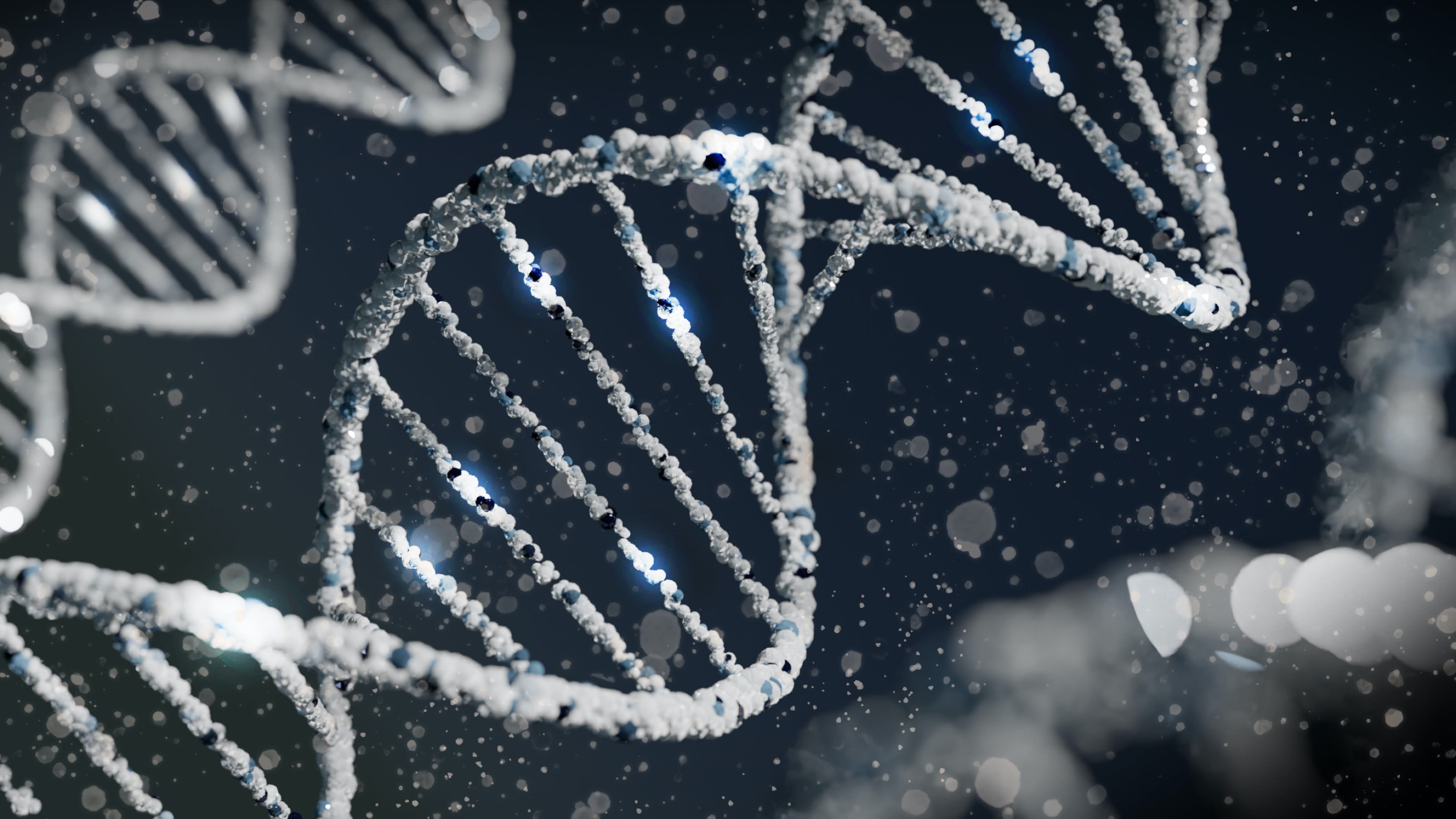
And he will continue focusing on his family. Like any other college student, Ziaee deals with a stress of deadlines, tests and projects so he values his support system.
“My mother, my father and my sister keep me grounded," he said. “Of course, deadlines and grades are important, but they remind me there are other, more real things in life that are important.”
While his diverse and amazing experiences have helped, Ziaee credits the support of his family for his achievements. And, it is because of his family, that he found his passion.
“Since I work with diverse populations, I always try to have their back.”
Guiding him is the Farsi phrase: “havātō dāram.” The literal translation is “I have your air,” but what it reflects is a deep sense of care for others, Ziaee said. “Since I work with diverse populations, I always try to have their back,” he added.
He also has some advice for other students who might be interested in pursuing opportunities but are hesitant.
“I have had so many people advise and guide me, it’s kind of like I have my own board of directors to reach out to. I think finding a support system is important,” Ziaee said. “UH is here to give you that support system so reach out to faculty and put yourself out there as much as you are able to.”
After a pause, he added: “I would tell them: You can do this, and if you don’t believe it, turn to someone you trust because they probably see more in you than you would imagine.”
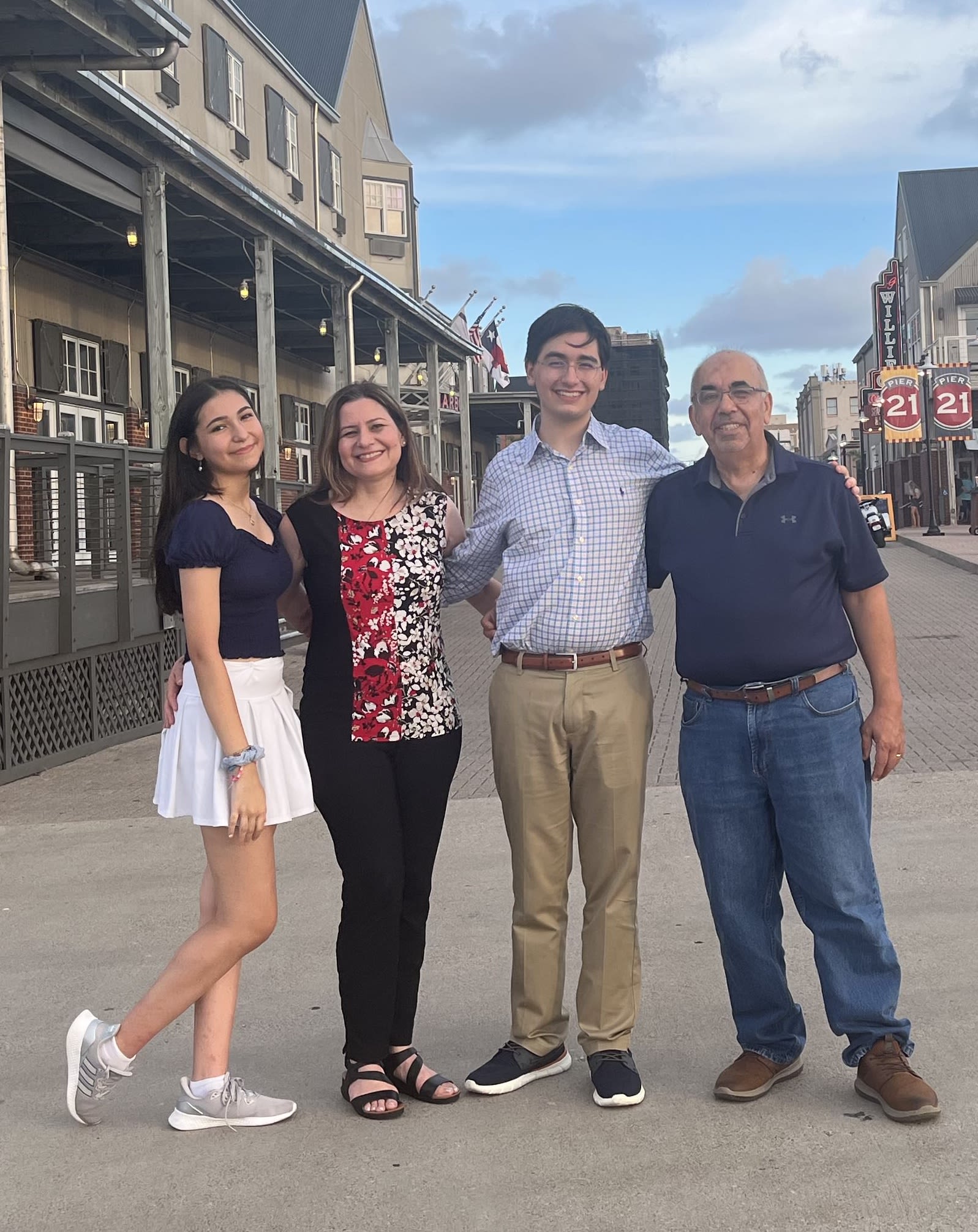
Mielad Ziaee with his parents and sister, his support system who keep him grounded.
Mielad Ziaee with his parents and sister, his support system who keep him grounded.
“havātō dāram.”
